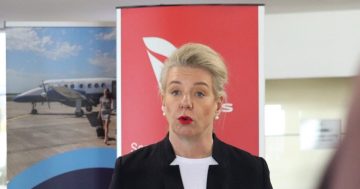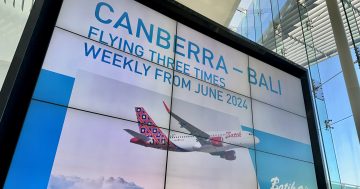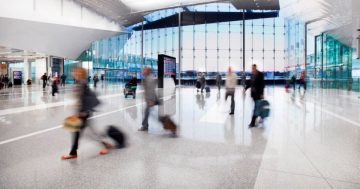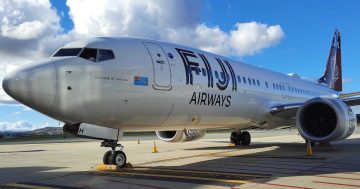
Government-facilitated flight for returning Australians will be met at Canberra Airport by health officials. Photo: Michelle Kroll.
A repatriation flight of around 150 to 180 Australians who have been stranded overseas due to the pandemic is scheduled to arrive in Canberra on Monday afternoon (7 February).
The flight, which is the first of two the Territory will receive in the next month, will depart from Chennai, with the majority of people coming from India.
All passengers will enter a mandatory 14-day hotel quarantine at the ACT’s only quarantine hotel, the Pacific Suites on Northbourne Avenue.
All hotel workers will have daily COVID-19 saliva tests due to concerns about the more contagious UK and South African variants of the virus.
The saliva tests are less accurate than the nasal swabs but still have an 85 to 90 per cent efficacy rate, health officials said.
Region Media has been told that any positive cases in hotel quarantine will be moved to an unoccupied floor for additional isolation.
The new precaution is in response to the virus spreading among people currently in hotel quarantine in Victoria despite having no contact with each other.
Victorian Premier Daniel Andrews said airborne transmission could not be ruled out.
Transport Canberra buses will not be used for transport from the airport to further reduce the risk of transmission. A transport company from NSW with experience with infection control will be used instead.
Last month, the Commonwealth Government announced that it would be organising an additional 20 repatriation flights above the cap on international arrivals to bring home some of the tens of thousands of Australians who remain overseas.
The ACT Government said it would accept two flights, but only one flight will be accepted per 14-day quarantine cycle and under the caveat that there were less than 300 people in quarantine in the ACT.
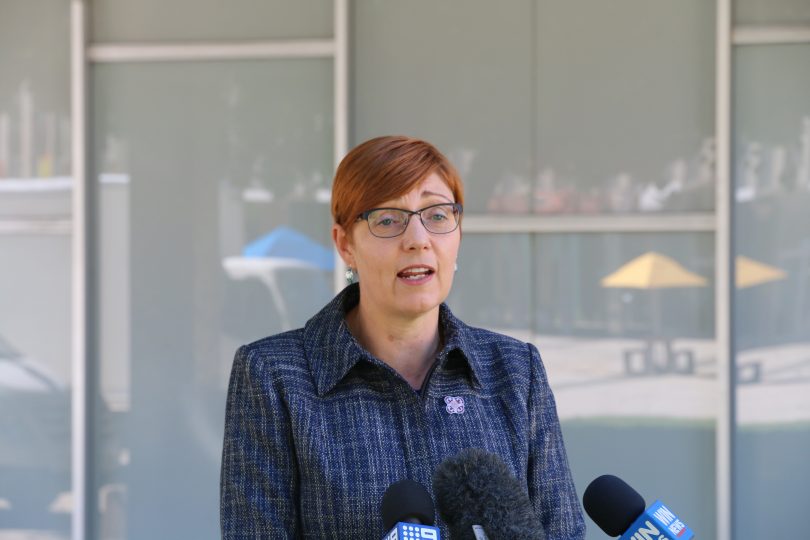
ACT Health Minister Rachel Stephen-Smith said interstate travellers quarantining in the ACT are considered to be relatively low risk. Photo: Dominic Giannini.
As of Thursday (4 February), 544 people* were in quarantine in the ACT. There are 116 people who have returned from overseas, most of whom are Commonwealth officials and diplomats, and 428 self-declared travellers from interstate who have visited hotspots, such as in some parts of Western Australia.
Health Minister Rachel Stephen-Smith said the ACT was still in a good position to receive the repatriation flight despite the numbers due to the low risk that interstate travellers in quarantine pose.
“They are in quarantine but the term I use is self-managed quarantine, they have done a self-declaration form, ACT Health knows about them and are in contact but not actively managing that quarantine because it is relatively low risk,” she said.
“Those people that are subject to that self-declaration arrangements are not really counted in the 300.
“We also have people who are returned overseas travellers in home quarantine in the ACT and close contacts as well who are in much more closely managed quarantine. It is that number that we are looking at in terms of the 300, the number that is very closely managed in terms of compliance and mental and physical health support.”
This number is expected to grow after the ACT introduced new restrictions today (Thursday, 4 February) on people in Canberra who have been to one of more than a dozen exposure sites across Melbourne since 29 January.
*Figures have been updated to reflect more timely data. ACT Health issued a correction that the previous figures were international quarantine arrangements only.












